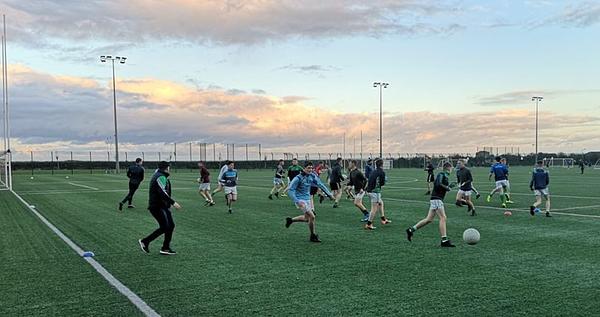Great article in yesterdays Irish Times: https://www.irishtimes.com/news/education/playing-sports-linked-to-lower-levels-of-anxiety-and-depression-in-teenagers-1.4378010
Teenagers who play sport are much more likely to have higher levels of wellbeing and lower symptoms of anxiety and depression, new research shows.
The study by researchers at Dublin City University found that only 8 per cent of teenagers are getting the daily recommendation of 60 minutes of moderate to vigorous physical activity.
The research, which explores the association between physical activity and mental health issues among adolescents, found 40 per cent self-reported symptoms of depression and anxiety.
The findings are based on a nationwide survey of more than 5,500 adolescents from 79 secondary schools across the State late last year.
Females (47 per cent) were much more likely than males (28 per cent) to report mental health issues.
While previous studies have examined physical activity levels among teenagers in Ireland as well as the prevalence of anxiety and depression, this is the first study to explore the association between the two in the same cohort.
Symptoms
The respondents completed a number of questionnaires capturing physical activity levels, sports participation and mental wellbeing as part of an anonymous online survey.
A total of 80 per cent reported playing one sport and 66 per cent took part in team sports
Those who engaged in sport were found to have higher levels of wellbeing and lower symptoms of anxiety and depression, with team sports conferring an additional benefit.
A total of 70 per cent of male adolescents took part in a team sport compared to 56 per cent of females.
Levels of physical activity, among females, decreased as they get older and only 1 per cent of sixth-year female students achieve the recommended physical activity guidelines per day.
Overall, the study found that young males reported greater levels of wellbeing and lower symptoms of anxiety.
A fifth of adolescents did not take part in any activity, either individual or team-based.
In addition, almost 90 per cent of adolescents who identified as non-gender reported high levels of anxiety and depression.
The research was undertaken by PhD student and PE teacher John Murphy and DCU academics Dr Bronagh McGrane and Dr Mary Rose Sweeney.
They concluded that schools and the wider community should promote regular physical activity and engagement in individual or team sports to enhance wellbeing and positive mental health in adolescents.
Physical activity
Mr Murphy said the findings emphasise the importance of increasing physical activity levels among adolescents who are least active.
“This research highlights the importance of young people remaining involved in sport throughout adolescence for both the physical and mental health benefits,” he said,
Dr Mary Rose Sweeney noted that the research was conducted before the coronavirus pandemic.
“As a society we need to increase the opportunities for young people to become more active,” she said.
“Funding for intervention research exploring the impact of different types and different intensities of physical activity on mental wellbeing in adolescents is needed, to explore whether increases in physical activity could be a viable alternative to pharmacological agents, increasingly being prescribed for adolescents.”







